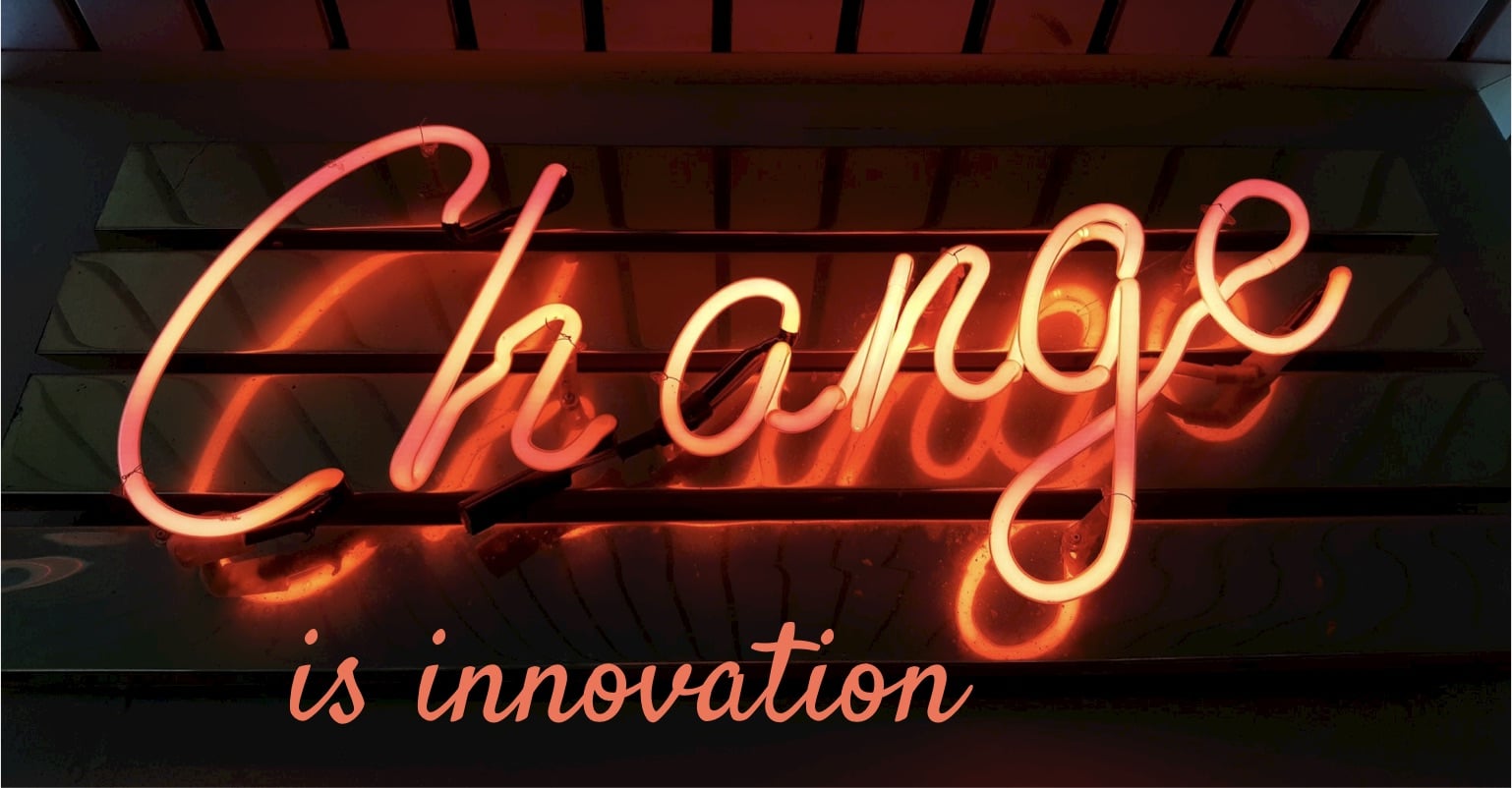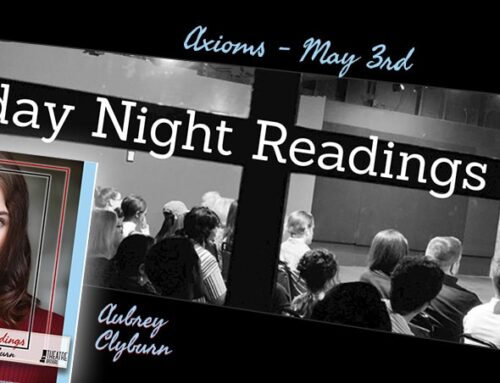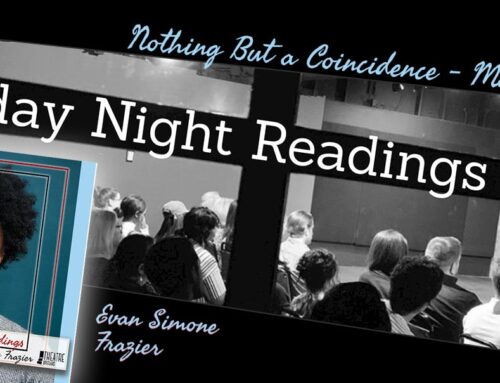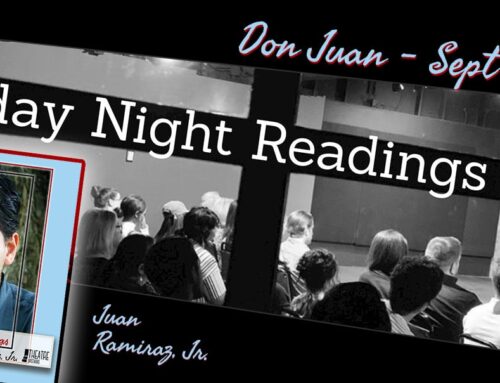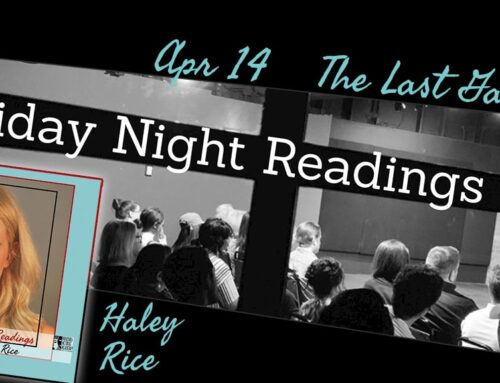Back in May – a theater experience called Eschaton produced and performed by New York Artists launched on Zoom. The event was meant to take place in person in several physical venues within a certain distance for a theater crawl experience. Rather than sitting on it, postponing and ditching all the hard work put into it. They designed a virtual experience full of over 20 Zoom rooms to explore. They built a website where you started from and could return to at anytime to follow a new rabbit hole, each room offered clues to a bigger mystery among the fictitious group of performers, including secret passcodes to enter rooms like… the actors kitchen, the green room, backstage and so forth. Everyone was searching for Mary. This underlying story was an incredible mechanism to keep their audiences coming back. For just $10.00 you had an hour of adventure and if you cared about Mary, you could return each week to pick up where you left off in the mystery. For me the experience was a delightful quarantine event… I was encouraged to dress for the nightlife, keep the lights low and pour a drink. I could have easily gotten invested coming back again and again. However, by the time I found it, it was sold out for weeks in advance. People from all over the world were attending this NYC virtual theater production. And so – the realization, or reiteration that this time could open up our ability to connect beyond our imagination (which is funny, because the technology has been there… just not necessary, therefore unimagined). So, there you are… while many theaters ran boring ole table reads sitting in front of Zoom screens, Eschaton was trying to give their audience the closest thing possible to what they dreamed of. For them it may have been a bummer having to sacrifice, research, reimagine… however, by putting in the work and delivering something tangible, they opened up minds to what was possible.
Not everyone doing Theater had the opportunity to experience Eschaton, truthfully, every small community is doing what they can to keep their communities alive. As a theater founder, operator and community leader from a previous life, I supported my husband while he brainstormed keeping his own little improv community engaged (Second Beat Improv Theatar). I did research, learned the possibilities early on and passed my knowledge onto him, encouraging him to find his own way as well. I have been proud of his determination and commitment to continue programming. It’s hard work and takes a lot of emotional labor, but still week in, week out, he offers online improv jams at least two times a month, weekly online live-streamed shows for groups to continue performing and ongoing performances by his theater’s most experienced group, The Skewed News Hour. Which by the way, just went international by committing to a 10:30am show on a Sunday so their old cast member, who now lives in Finland can come back to play. Phenomenal! Being in the Improv scene I have watched as performers started in challenge, learning is growing, growing is change and change is hard. hehe. Many made the decision early that online performance wasn’t for them, some never even tried. Some are now leaning into it after – what was hoped to be a few months – is now half a year of this “new reality”.
At the same time that I was supporting my husband with his own community, I was creating Artists Corner and working with our small team at AZAA to dream up engaging programming that would keep people connected from home. Specifically our own actors who experienced hardship from the pandemic and couldn’t afford ongoing training. We created Friday Night Readings, Live Radio Plays, Improv Jams and free workshops in various topics. All using Zoom… I chuckle to myself, because these things are incredibly hard to sustain with a small team, but we are, much like everyone else, moving at a snails pace with kindness and compassion for ourselves, while we foster our own community, keep our local business alive and try to create a resource for artists every where. While my head was down and focusing on my direct community, so was everyone else, and when I pulled my head up… virtual theater was determined to stay around and everyone was thinking “how do I make this better”. So you get things, such as… my experience with the incredible brainchild of Ghosteater here in Phoenix. They delivered kits to all their actors to build a rig and go mobile, trying to create more action beyond sitting in front of a Zoom screen. This process was incredible, new tech solutions every rehearsal. Skype, then discord, then the platform they were most avoiding, Zoom. haha – I realized then how superior Zoom was. They actually, with amazing tech knowledge, created a performer green room and used the breakout room for the performance, so we were entering and exiting just like a stage, fit with an amazing stage manager keeping us all on cue. Meanwhile, Improv theaters everywhere are trying to figure out Twitch, the gamer platform using the Open Broadcast System (OBS). The play I was in also preferred this method of broadcasting and so did a recent festival I did online. Honestly, one challenge at a time for me, I’m perfectly fine continuing to master my Zoom abilities.
Also – everything is free… donations suggested and now more than ever theater is accessible to anyone with an internet connection. Monetizing online theater is extremely difficult. I am going to share many articles for you to adventure through and see what else is going on, but one of them mentions how virtual theater has really changed the game in terms of whose watching. Theater had become this upper class experience of sorts, at least to see the most amazing of productions… and for many it’s not a comfortable experience to have to fall into that expectation, for some it’s unaffordable. Now, anyone can stay in their sweats, drink beer and watch a beautiful production put on by, let’s say – the National Theater of London – among the long list of at home theater entertainment to pick from.
Let’s face it, virtual performances are easy and cheap so why wouldn’t we? They keep communities connected by giving their artists opportunities to participate or engage. It’s easy to offer free programming, and in a way, it is an incentive to stay connected, but also an opportunity to give to our communities, to give back, to say, we need each other. Today… I can put up an improv show anytime I want, I don’t need a theater to feature me. I could perform for the public everyday if I wanted at no extra expense to me, and from my own home. I don’t have that kind of motivation… however, to know that… it’s quite freeing as a performance artist. For whatever reason, I’m perfectly happy with that… I feel connected, I feel inspired… although there are two sides to this current coin.
One last thought about performing anytime you want… if you’re entertaining enough, people will watch you do anything, I mean look at Tik Tok for crying out loud. I understand that now we’re moving into that odd territory of the “social dilemma” and our addiction to likes… so just… check in with yourself, are you doing it for the art, or accolades?
One thing is for sure, theaters really need to start figuring out how to justify ticket sales. The free model is unsustainable. It still takes time, work, valuable talent and emotional labor for the creators, not to mention the need to have capital when performing live is safe. The truth is, people don’t mind paying… it’s just… so much is free. So like Eschaton, we have to be more creative. Where some folks are trying to evolve and innovate the virtual theater experience to amp up more money generating opportunities, others, those who miss the stage and real physical connection are innovating NON VIRTUAL theater in this pandemic. And some are going back to our old traditions.
In improv, folks are going to parks or patios to perform, returning to outdoor performances, which is something improvisors 10 years ago couldn’t wait to get away from, outdoor shows are so difficult in improv. Yet, small crowds are perfect for that experience, so the return is kismet. In theater, folks are creating very interesting solutions. Let’s talk about how performance artists are returning to reality any way they can.
I love this article about what’s happening in Austin that was shared to me by a collaborator.
Austin Theatres Are Moving the Stage Beyond Zoom
One group is creating a whole Summer Camp storyline and “subscribers” are put on a SNAIL MAIL list. That’s right, the audience members who purchase a ticket get real letters from a handful of campers and the letters tell the story of what is happening at camp. The event ends with a radio program to complete the narrative. The idea of getting mail as a theater experience is fascinating.
Another group is producing a radio play… which I think is an interesting evolution, to say, we can create a stronger more engaging show in a radio experience than on zoom. We can engage the listeners imagination, versus asking them to suspend disbelief by watching us all act from a chair.
Another production is a scavenger hunt experience around a specific neighborhood via your car, accompanied with audio.
I then started searching around for other neat things and found this event from the Goodman Theater
Live Goodman play to tour Chicago parks, with E. Faye Butler as activist Fannie Lou Hamer
They created a mobile stage and it drives around the Chicago parks presenting a Free version of the play. This is going on now Chicago!
In collaboration with the Chicago Park District, Goodman Theatre presents Cheryl L. West’s exhilarating Fannie Lou Hamer, Speak on It!, a FREE abridged version of West’s play Fannie—recently announced as part of the 2021 Season—in the community and parks for three weeks beginning September 17. Learn more about when you can catch FANNIE in a Chicago park near you.
Right here in the Arizona “Valley of the Sun” our very own TheaterWorks in Peoria has totally innovated around their limitations.
Find yourself right in the middle of TheaterWorks’ new ‘Alice in Wonderland’ themed show
With much of their season on hold, they turned their entire facility into a fun house around “Alice in Wonderland”. Guests go in with their own pods of limited size and move through the play one room at a time while the action happens around and to them. It’s genus.
If you are in the Phoenix area and want to check it out…
Curiouser & Curiouser
This article from a month ago talks about what’s happening with theater in Japan.
Theater in Japan During the Covid-19 Pandemic: A Time of Uncertainty and Innovation
One group created a series of rooms where one person at a time roams through watching the performances from a hole in the wall. Sounds like theater voyeurism and my mind soars with the potential stories one would tell from this perspective. Some folks are doing the mobile stage thing, performing out of the back of trucks.
What I loved about this article was the support for the arts from the very beginning.
Japan eased the initial coronavirus blow to its arts and culture sector, earmarking ¥55.9 billion in support, with up to ¥25 million in subsidies for streaming audience-free performances online, and ¥1.5 million handouts to small theater groups.
This article from Playbill.com talks about this fella Brendan Bradley who built a virtual theater…
Can This Game-Changing Innovation Get Live Theatre Back Before the Pandemic Ends?
Brendan Bradley has built a theatre in which it is entirely safe for actors to perform onstage together and audiences to attend with friends (even those with whom you’re not quarantined) sans masks or temperature checks; and it exists in virtual reality. Before you dismiss this as just another screen, click here to check out the space in a virtual walkthrough.
So yeah, a virtual theater, that your virtual being can walk into, can go onto stage with other virtual beings and perform in front of an audience of virtual beings… and now the future is catching up to us, little by little… “ready player one”?
I really enjoyed this article talking about virtually diversifying audiences, the trend of live chatting during performances and why its important to consider how this time has changed the future of theater.
Theatre companies are pushing storytelling boundaries with online audiences amid COVID-19
Rethinking the future
A recent article in the New York Times suggests that the current explosion of digital theatre is merely a way of holding space before we can return to “real” theatre.
But this ignores the inventive responses of theatre artists who have shown that theatre is patently not tied to theatres: the presence of a public building is not a necessity for performance. Indeed, many artists were creating innovative online work long before the pandemic.
With theatres thinking about a return to physical spaces, it is worth considering how the “digital turn” will impact future spectator conventions and expectations. Renegotiated and re-imagined ideas of access, community and interactivity, borne out of necessity, are an opportunity to rethink theatre. These should not be ignored when the return to public spaces happens: rather, they should inform theatre’s future.
This article from the New York times features NYC Theater makers talking about how they see theater today and moving forward. A really good example of how there are completely different feelings about virtual theater, where it can go, versus how we need to get back to the physical theater experience.
20 Theater Figures on How to ‘Revolutionize’ Their World
I also found this article in my search and wanted to share… cause yes! if you’re pursuing a Theater degree… what the heck are you doing now, how are you supposed to get on hand experience? Well this school, focusing on online courses has had to imagine this prior to a pandemic on order to support and justify that online education. So… perfect for them…. and perhaps this time period for education is training a whole new generation to integrate more technology into our art form. The connectivity alone is a benefit, where now you can integrate artists and creators from all over the world to “hopefully” create a more diverse art form.
Innovating in the Arts: How Online Art Degree and Theater Arts Programs Are Connecting Virtually
Online Theater Degrees Feature Virtual Performances
Due to the pandemic, APU’s Theater Arts program was able to create one of the first BFA Online Industry Showcases in the country. Brennan-Lincoln explained that the school’s degrees are designed to remain current and relevant because adaptability is important for artists seeking a career in acting, directing, writing, or design.
“We are preparing for a season of productions that include virtual performances and theatrical performances using cutting-edge projections that will be available on video for demand,” noted Brennan-Lincoln. “Our classes continue to focus on laying the foundations of technique while diving into progressive approaches.”
Personally – these are the current ideas I’m exploring…
My husband is getting groups back on the stage without audiences. Some improvisors are ready to play together. So how do you livestream an improv show from the stage and make it interesting to watch online? This feeds my thought that we need TV producers… or that mindset. To create multi camera set ups on our stage and switch between vantage points to highlight the action. Two challenges here… 1st, Zoom, it is limited – it’s not smooth to transition spotlighted screens… if you wait to long to switch your spotlights – Zoom picks up whatever vantage point your audio is coming from. In my current set up, the audio is not attached to a camera angle. So – it may be more trouble than it’s worth. We’re still trying it, because in my mind, “what have we got to loose”… we’re gaining experience in something. However, it provides a conundrum when you don’t have bags of money to invest, and learning sucks sometimes, ugh! 2nd issue, Improvisors aren’t very active, there is nothing worse than watching two talking heads and waiting for them to do something. As an improv coach, it’s incredibly enlightening, so you can be sure when we do get back to the stage more, I will be offering a workshop focusing on how we maximize the stage. What a terrible, terrible habit. No wonder some Zoom shows are boring, talking heads is not a new thing.
Mostly I’m enjoying the challenge of Zoom, cooking up interesting formats for the platform to workshop with my students. I’ve been focusing on exercising the skills needed to make Zoom acting interesting. Treat the room you’re in like the stage, imagine your partners in your physical space, this commitment to the reality you are creating can make all the difference. Also – play with energy, you can’t rely on an audience to feed you, YOU have to bring it!
In conclusion, I hope this long blog post was useful to you, I’ve learned so much from putting it together.
Stay safe, stay connected and continue to feed the artist within!
XO – Jacque Arend
What are your thoughts about the future of theater? Share with us in the comments.

